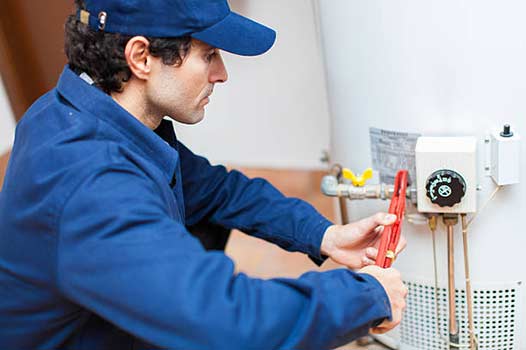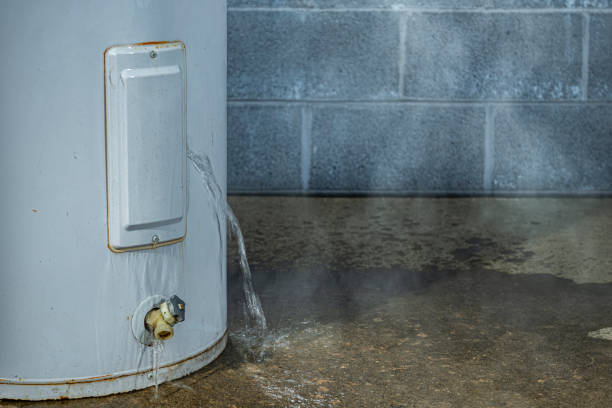
Having a functional water heater is essential for a comfortable and convenient lifestyle. Whether it’s for taking hot showers, doing the dishes, or washing clothes, a water heater plays a crucial role in our daily activities. However, like any other appliance, water heaters can encounter problems and require attention to ensure they continue to operate efficiently.
The Importance of Regular Maintenance
Before we discuss the clear indicators that your water heater requires immediate attention, it’s essential to understand the significance of regular maintenance. Just like your car needs regular servicing to avoid breakdowns, your water heater also needs periodic maintenance to prevent potential problems.
Regular maintenance of your water heater not only extends its lifespan but also helps in conserving energy and reducing utility bills. Neglecting maintenance can lead to significant issues that may require expensive repairs or even replacement. By staying vigilant and addressing problems early on, you can save yourself from unnecessary inconvenience and costs.
Clear Indicators that Your Water Heater Requires Immediate Attention
Lack of Hot Water
One of the most obvious signs that your water heater tank requires immediate attention is a lack of hot water. If you’re experiencing inconsistent or cold water, it could indicate a problem with your hot water tank. While occasional fluctuations in water temperature are normal, persistent cold water issues warrant investigation.
The lack of hot water can be due to various factors, including a faulty heating element, a malfunctioning thermostat, or a buildup of sediment in the tank. Regardless of the cause, it’s essential to contact a professional plumber to diagnose and resolve the issue promptly.
Strange Noises
If you hear unusual noises, such as popping, banging, or rumbling sounds coming from your water tank, it’s a clear indicator that something is not right. Typically, sediment accumulates at the bottom of the tank over time, causing these noises. The sediment can interfere with the heating process and reduce the heater’s efficiency.
Ignoring these sounds can lead to more severe issues, such as decreased hot water flow or even a complete breakdown of the water heater. Calling a professional to flush out the sediment and restore your water tank’s proper functionality is crucial in such cases.
Leaks and Drips
Water leaks or drips around your water heater are definite red flags that should not be ignored. Leaks can occur due to a variety of reasons, such as a faulty valve, a crack in the tank, or loose connections. These leaks not only indicate a problem with your water tank but can also cause water damage to your property.
If you notice any signs of leakage or pooling water around your water heater, it’s important to address the issue immediately. Ignoring leaks can lead to more significant damage and result in costly repairs. Contacting a professional plumber will help identify the source of the leak and take appropriate measures to fix it.

Fluctuating Water Temperature
If you experience frequent fluctuations in water temperature while using hot water, it could indicate an underlying problem with your water heater. Inconsistent temperature can make it difficult to perform daily tasks that require a steady supply of hot water, such as showering or washing dishes.
Fluctuating water temperature can occur due to various reasons, including a malfunctioning thermostat, a faulty heating element, or mineral buildup inside the tank. To prevent further inconvenience, it’s advisable to contact a professional plumber who can diagnose the issue accurately and recommend the necessary repairs.
Aging Water Heater
Water heaters have a typical lifespan of 8 to 12 years. As your water heater ages, it becomes more susceptible to wear and tear, making it prone to various problems. If your water tank is approaching or has exceeded its expected lifespan, it’s essential to pay close attention to its functioning.
An aging water heater may exhibit signs such as reduced efficiency, increased energy consumption, or recurring issues. It’s advisable to consider a replacement if your water tank is reaching the end of its lifespan or if repairs become frequent and costly.
Rusty or Discolored Water
When you turn on the hot water tap and notice rusty or discolored water, it’s an alarming sign that your water heater needs immediate attention. The presence of rust or sediment in your hot water indicates a corroded or deteriorating water heater.
Rusty or discolored water can occur due to corrosion inside the tank, which can lead to leaks and further damage. It’s crucial to have a professional plumber inspect your hot water tank to determine the source of the issue and take appropriate action.

Foul Odor
An unpleasant odor emanating from your hot water can be another clear indicator that your water heater requires attention. The presence of a foul smell often indicates bacterial growth inside the tank. Not only does this pose a health risk, but it can also result in undesirable taste and odor in your hot water.
Having a professional flush and sanitize your water heater can help eliminate the bacteria and restore the quality of your hot water. Regular maintenance and occasionally increasing the temperature of the water can prevent bacterial growth and associated odors.
High Energy Bills
If you notice a sudden or significant increase in your energy bills without any changes in your usage patterns, it could be a sign of an inefficient water heater. A water heater that is not operating optimally consumes more energy to heat the water, resulting in higher utility costs.
Monitoring your energy bills and correlating them with the functioning of your water heater can help you identify any potential efficiency issues. If you observe a consistent upward trend in your bills, it’s advisable to have a professional plumber assess the performance of tank and replace the water heater if needed.
To Wrap It Up
Being attentive to the signs that your water tank requires immediate attention is crucial for maintaining a comfortable and functional home. By addressing problems promptly, scheduling regular maintenance, and seeking professional help when needed, you can ensure the efficient operation of your water heater and avoid unnecessary inconveniences and expenses.
Remember, prevention is always better than cure when it comes to your water tank. Stay proactive, and your water heater will serve you reliably for years to come.

